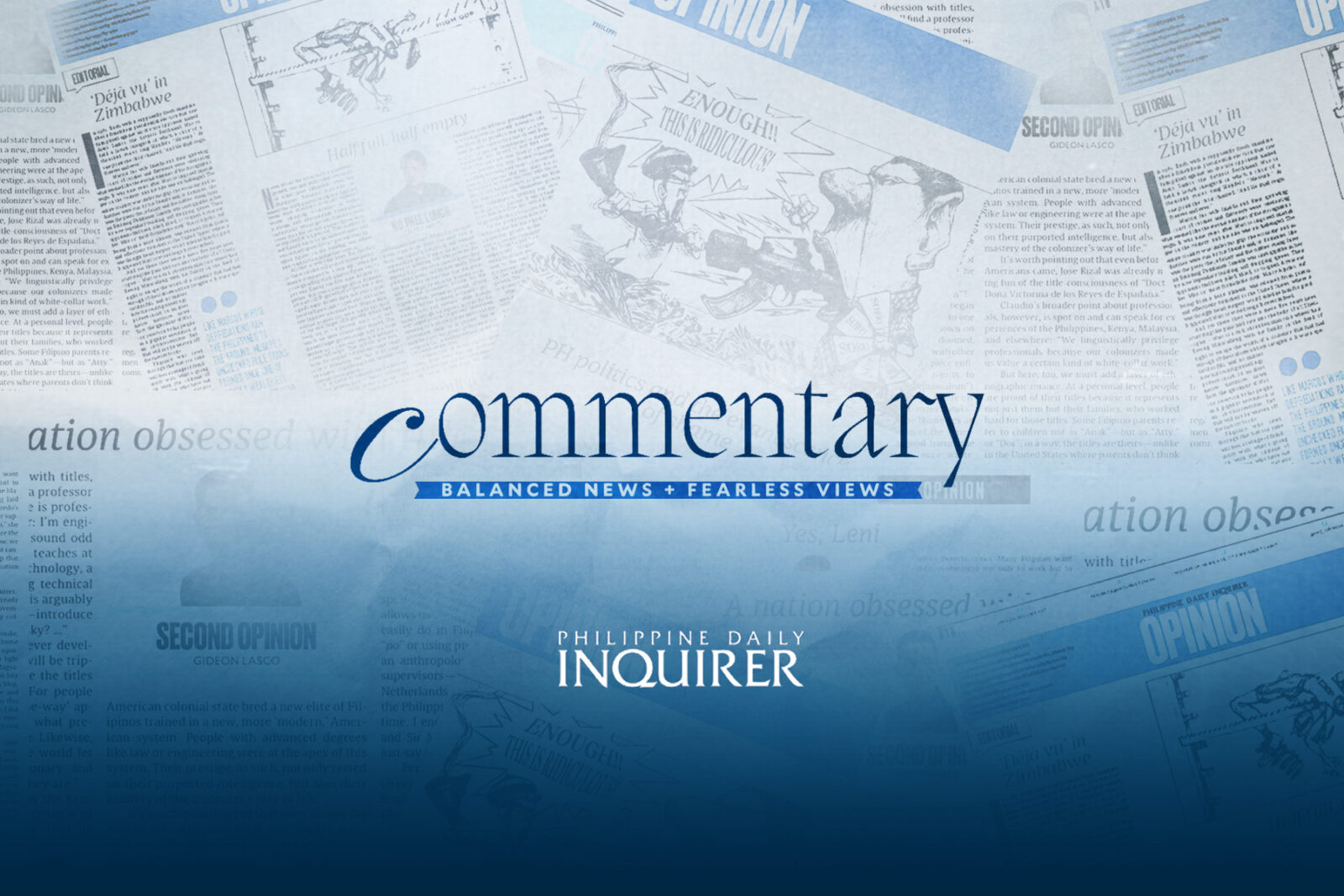The flight that outran the courts

When former president Rodrigo Duterte touched down at the Ninoy Aquino International Airport from Hong Kong in early March, he was greeted not only by his supporters, but also by a stark reminder of the global legal system that loomed over him. The warnings had been there all along. Now it dawned on him like a modern-day Ides of March. Despite his previous brash public declarations of willingness to confront any charges with unflinching bravado, the reality of an arrest by the International Criminal Court (ICC) caught him and— more shockingly—his legal team entirely off guard.
True, they quickly asked for an ICC or local court warrant from the belly of the plane which a government posse boarded to arrest him. Despite our pullout from the ICC—which Duterte himself initiated—the Marcos administration yielded to the International Criminal Police Organization, surrendering Duterte without judicial oversight. This could have prompted legal scrutiny and delayed his transfer, but Duterte’s camp failed to seek the writ of habeas corpus.
Habeas corpus, the Latin term for “you have the body,” has long been the cornerstone of personal freedom. English jurist William Blackstone called it the “bulwark of liberties.” Enshrined in our Constitution, the “privilege” of the writ may not be suspended unless there is rebellion, invasion, or public safety concern; even then, the right to bail remains.
Under the rules, the writ applies in all cases of unlawful detention or withholding of rightful custody. Any interested person can file a petition for its issuance with the Supreme Court, Court of Appeals, Sandiganbayan, Regional Trial Court (RTC), “or a judge thereof, on any day and at any time.”
Duterte had that option, but neglected to promptly challenge his arrest in Pasay City, where Villamor Air Base is located, or in other RTCs within the National Capital Region. Presided over by a single judge, the process in these courts is more straightforward. Jurisprudence, such as Villavicencio v. Lukban, permits habeas corpus petitions without strict formalities. In Fletcher v. Director of the Bureau of Corrections, the Supreme Court accepted even a letter, adding that when the state restricts someone’s freedom, courts must act with diligence in granting the writ. Courts tend to issue the writ liberally, as shown in Salibo v. Warden of Quezon City, where the petition seemed weak initially, or Ganaway v. Quilen, where the pleadings are “on their face devoid of merit.”
Once the petition is filed, the court may immediately issue a “preliminary citation,” requiring the respondents to justify the detention, or a “peremptory writ,” compelling them to produce the detainee and explain the detention. After the “return” and a summary hearing, the court grants or denies the petition. If granted, the “privilege” of the writ orders the detainee’s release.
Amid the chaos of a failed pizza delivery and busted forehead, Duterte’s crew failed to crack the Maharlika Hall puzzle. ”He assumed he would be brought to [our courts] if arrested,” Vice President Sara Duterte confided. Instead, things unfolded differently, leaving his camp blindsided.
By late afternoon, Duterte’s team rushed a petition for a writ of certiorari, a more stringent remedy which, as the Supreme Court found, does not show a “clear legal right” to warrant a restraining order.
As night fell over the tarmac, the only light came from scattered, flickering bulbs that reflected off a chartered plane, poised to whisk Duterte away. His former chief counsel would finally announce plans to file a habeas corpus petition. But by then, RP-C5219 was already a lion at the gate, ready to pounce.
Soon after, President Marcos addressed a nation in disbelief: Duterte had been flown to The Hague at 11:03 p.m.
When the sun rose, Duterte’s children would seek the privilege of the writ, the same remedy he suspended in Mindanao eight years ago.
One might debate whether Duterte’s flight to The Hague renders the writ moot. But it is undeniable that his departure was not merely a result of an ICC arrest warrant or the power of the president whom he openly mocked. It was the culmination of a series of miscalculations—a swollen pride, a lack of urgency, and a near-total disregard for the legal avenues that could have protected him. In the critical moments when swift action was needed, his team failed to mount a timely defense, leaving their once mighty figurehead a prisoner of his own choices, his rights compromised not only by others, but also by those closest to him.
————–
Noel B. Lazaro and Louisse S. Inguillo specialize in corporate law and litigation. They teach courses on special proceedings and criminal procedure at various law schools.

















Flirting with green virtue-signaling